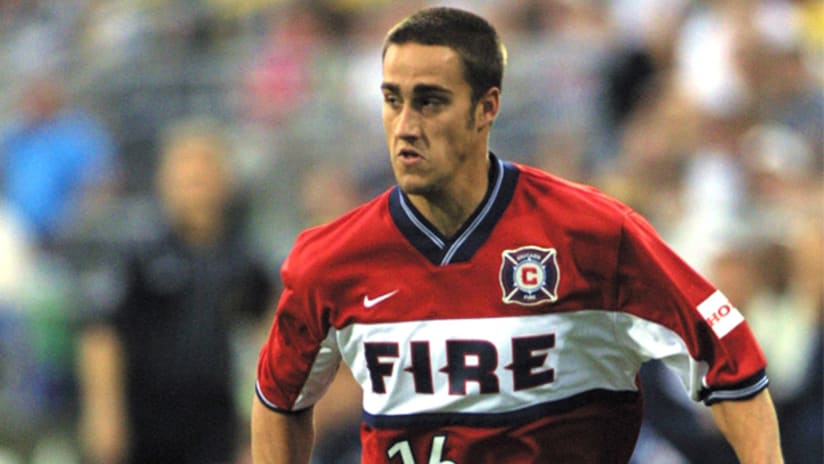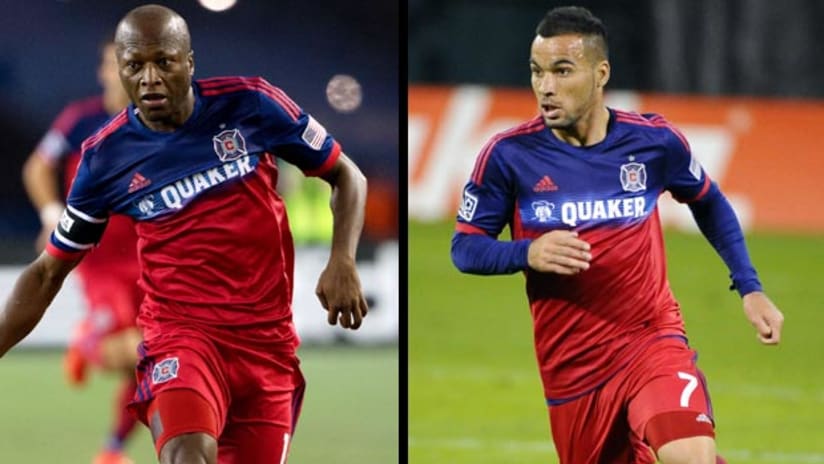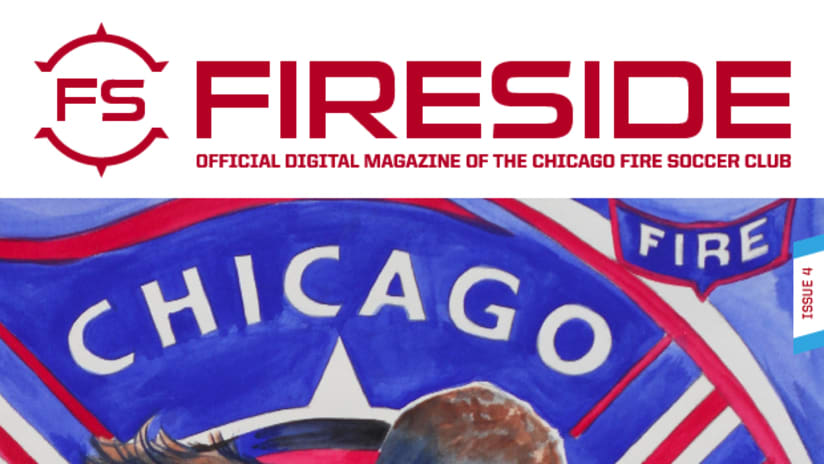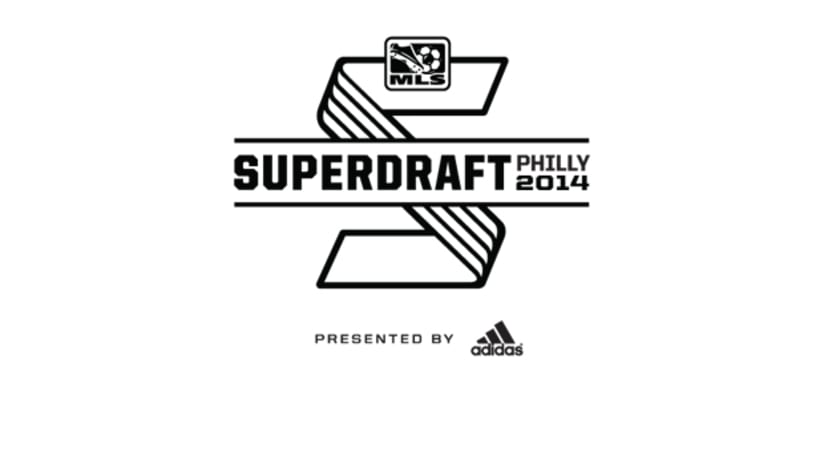Though reported by The Washington Post’s Steven Goff on Tuesday, D.C. United announced Wednesday that player/coach Josh Wolff would keep just the second part of his title heading into 2013. With his retirement announcement, Wolff caps a 15-year professional career and becomes the last player of the Chicago Fire’s 1998 double-winning squad to hang up his boots.
The Stone Mountain, Ga. native left the University of South Carolina after his Junior season to sign a Nike Project-40 (the precursor to Generation adidas) with Major League Soccer, eventually being allocated to the Fire early on in 1998.
Talk about being in the right place at the right time…
Wolff didn’t necessarily get his feet wet in MLS at the start of the season, rather he would train with the Fire during the week before heading off to such minor league locales as Raleigh, Albuquerque and Worcester to suit up for the U.S. Pro 40 team in A-League play.
After a couple months of minor league jaunts, Wolff would eventually take his first bow for the Men in Red and become the first player in Fire history to score in a natural debut when he tallied the final goal in a 5-0 romp over Colorado on May 23.
Though at first his Fire appearances would come months apart, Wolff eventually became a key attacking substitute for Bob Bradley that season, often replacing the likes of Roman Kosecki and Frank Klopas. Often overlooked are the accomplishments in that bit role, going on to amass eight goals and three assists in 14 regular season appearances. It’s even more impressive when you consider Wolff also led the U.S. Pro-40 team in scoring with 12 goals that season.
Wolff would go on to win the American double that October and ironically finish as a runner-up to his current boss Ben Olsen for MLS Rookie of the Year.
The following season Wolff carved out an expanded role, often partnering with Ante Razov in the Fire attack. He’d join his striker partner in becoming as the second player in Fire history to tally double-digit goals, all while paving the way for his first of 52 U.S. Men’s national team appearances that September.
Though his regular season goal tally would take a slight dip with only seven goals in 2000, Wolff did lead the side with another six in the U.S. Open Cup that year. Specifically, he became the first and still only Fire player to tally four goals in a match, doing so in a 5-1 U.S. Open Cup quarterfinal victory over Dallas. In the semifinal, Wolff would score the “Golden Goal” winner, tapping home a rebound to send a 10-man Fire side to their second cup final (and eventual championship) in three seasons in a 2-1 victory at LA.
Wolff’s form in 2000 paved the way for him to become a fixture with the national team the next year. Connecting with fellow South Carolina native Clint Mathis, he’d score the first and assist on the second goal as the U.S. defeated Mexico 2-0 in a memorable World Cup qualifying match that February in Columbus. In April, he knocked home the only goal in a 1-0 home win over Costa Rica, pushing the U.S. to a perfect 3-0-0 record in the final round of CONCACAF qualifying.
Having tallied two goals in three league games, the U.S. international suffered the first of a series of tough injuries when an errant tackle from Tampa Bay defender Craig Demmin forced him out of the Fire’s 1-0 victory at Tampa Bay on April 28. Scheduled to be out just three-to-four weeks, the mysterious soft-tissue injury wound up keeping him on the shelf the rest of the season.
Wolff recovered in time for 2002 and was even named to Bruce Arena’s World Cup team that year, going on to assist on Brian McBride’s game-winner in the knockout round match vs. Mexico. After the team’s quarterfinal exit, Wolff returned to the Fire to tally five goals and five assists but an unfortunate injury setback would end his Fire tenure.
Thanks in large part to a goal and assist from Wolff, the Fire led the Kansas City Wizards 3-1 at halftime in a match played at Naperville’s Cardinal Stadium. Making a routine run forward in the 55
th
minute, Wolff planted wrong and immediately fell to the stadium’s artificial surface. The prognosis was a torn right ACL and four-to-six months recovery.
With the club nearly $1 million dollars over the salary cap heading into 2003, Wolff joined the likes of Piotr Nowak, Hristo Stoitchkov and Dema Kovalenko in a budget exodus that would lead him to Kansas City.
In two stints there sandwiched around his time with German second division side 1860 Munich, Wolff would bag 41 goals and 22 assists as well as winning his second MLS Cup in 2004 while also going to his second World Cup in 2006.
He joined D.C. United via the 2010 MLS Re-Entry Draft and recording five goals and eight assists in his two seasons at RFK Stadium.
While injuries certainly kept Wolff from his full potential at the Fire, the young striker played a significant role in the club’s early success, winning three championships and playing in all four finals the team was in during his five seasons in Chicago. If not for the injuries, its likely the club's third all-time leading goal scorer would also be much further up on the Fire goal charts.





